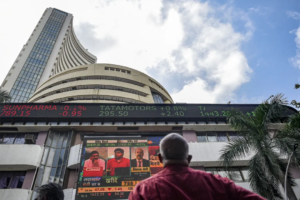Posted on March 26, 2025, by Niftynews
Maruti Suzuki shares came under significant selling pressure in early trading on March 26, 2025, after the company disclosed that it had received a draft income tax assessment order amounting to Rs 2,966 crore for the financial year 2021-22. The draft tax order, which was issued by the Income Tax Authority, has caused concern among investors, with Maruti Suzuki shares falling by nearly 1% in early trade.
Maruti Suzuki Shares React to Draft Tax Assessment
The Maruti Suzuki share price dropped sharply following the announcement, as investors feared potential financial implications. However, Maruti Suzuki India reassured its investors by clarifying that there would be no financial impact on the company’s operations, financial health, or other activities due to the draft tax assessment.
The company stated that it would file an objection before the Dispute Resolution Panel to address the proposed additions and disallowances amounting to Rs 2,966 crore in the FY21-22 assessment.
Maruti Suzuki India Clarifies No Impact on Financials
In a filing to the stock exchange, Maruti Suzuki confirmed that it had received the draft assessment order on March 24, 2025. The filing explained that the Income Tax Authority proposed certain additions/disallowances related to the company’s income tax return, amounting to approximately Rs 29,660 million (Rs 2,966 crore). Despite this, Maruti Suzuki India has confirmed that this development will not affect its financial performance or operations.
The company plans to file its objections with the Dispute Resolution Panel, which will review the case and decide on any further course of action.
Maruti Suzuki Shares: Previous Tax Disputes
This is not the first time Maruti Suzuki has faced tax-related challenges. In July 2024, the company received a tax demand of Rs 779.2 crore, including interest, from the Income Tax Authority. Additionally, in October 2023, the company was issued a draft assessment order for Rs 2,159.70 crore, which had previously weighed on Maruti Suzuki shares. Despite these ongoing tax issues, the company has managed to continue its operations without significant disruptions.
Maruti Suzuki Plans Price Hikes Amid Rising Costs
In addition to the tax assessment, Maruti Suzuki recently announced an increase in car prices by up to 4% from April 2025 to counteract rising input costs. The company had also implemented price hikes earlier in February 2025, with price increases of up to Rs 32,500 across various models. The price hike was seen as a strategic move to help offset the impact of inflation and the increase in input costs, though it may also have an impact on Maruti Suzuki share price in the coming months.
Financial Performance and Stock Market Impact
Despite these challenges, Maruti Suzuki India continues to hold a strong position in the Indian automobile market. The company’s net profit and market share in the domestic market have remained robust, with continued demand for its vehicles such as the Alto K-10 and Invicto. However, Maruti Suzuki shares have faced increased volatility, especially with the tax assessment and the price hike announcement.
As of March 26, 2025, Maruti Suzuki’s share price stood at ₹11,796.95, down by 0.61%, with trading volume reaching 135,859 shares. This reflects the market’s cautious approach in response to the recent tax assessment order.
Conclusion: Maruti Suzuki Shares and Future Outlook
The news of the draft tax assessment has led to Maruti Suzuki shares facing selling pressure, as investors remain wary about the potential financial implications. However, the company’s clear communication regarding the absence of any immediate financial impact and its plans to contest the order have provided some reassurance to stakeholders.
With the company continuing its operations and its focus on maintaining a strong market position, it is likely that Maruti Suzuki shares will continue to experience fluctuations as the tax dispute is resolved. The ongoing price hikes may help the company manage rising costs, but investors will need to keep an eye on developments related to the tax assessment and its broader implications for the stock.











